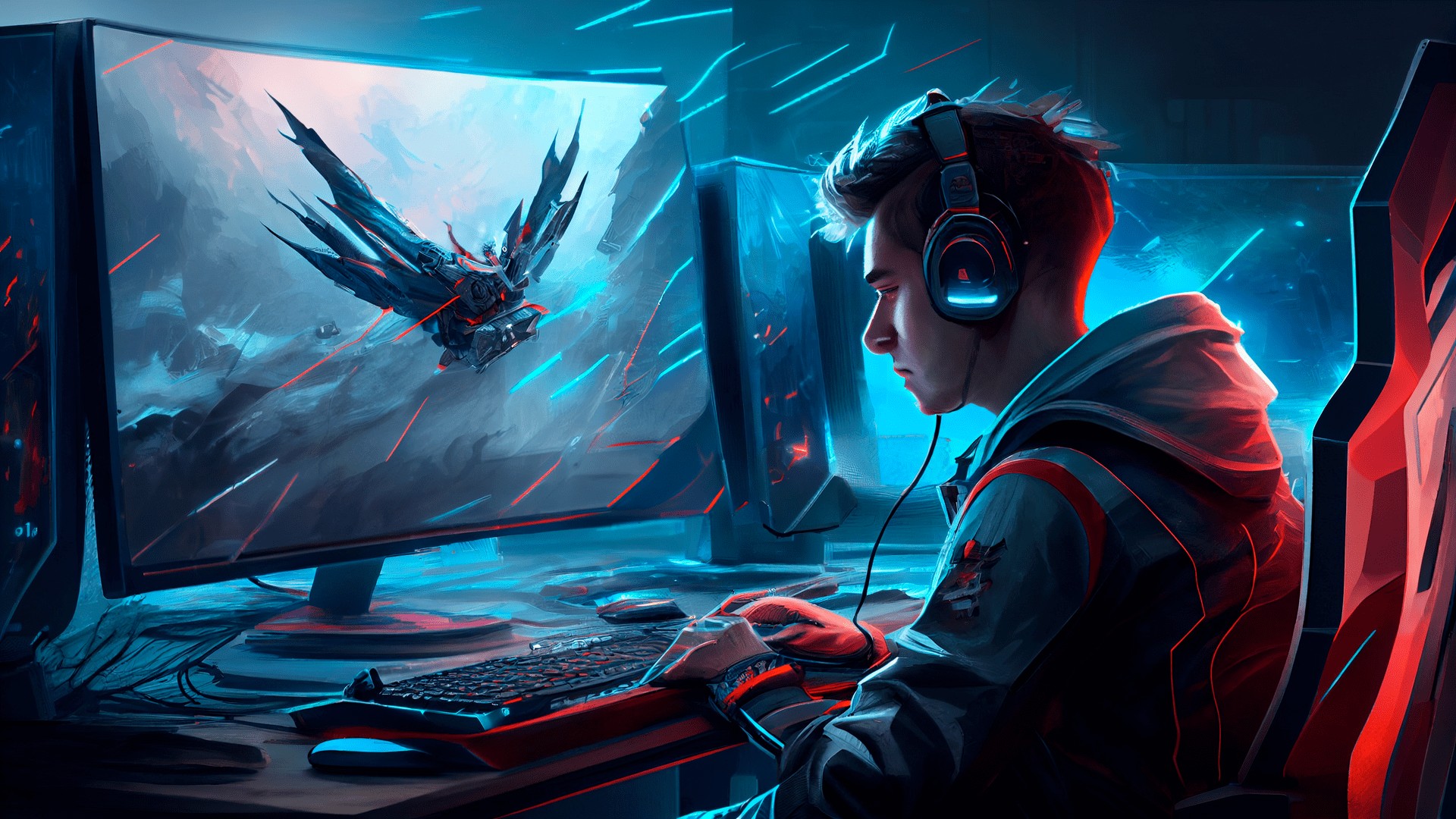The digital coliseum roars with pixeled cheers. Esports champions clash, pixels dancing on screens as millions watch, fingers hovering over keyboards, hearts pulsing with the thrill of virtual conflict. This isn’t just entertainment; it’s a battlefield where technology reshapes the very fabric of PvP gaming and fuels the burgeoning world of esports gambling. From augmented reality battlescapes to AI-powered opponents and secure blockchain-based betting platforms, technology is rewiring both how we compete and how we wager on competitive excellence.
Redefining the Arena: Immersive Experiences and Blurring Reality
Imagine stepping into a battlefield, not as a passive observer, but as a warrior wielding your own destiny. Virtual Reality and Augmented Reality are poised to revolutionize PvP gaming, immersing players in the heart of the action like never before. Imagine coordinating strategies with teammates across continents, feeling the heat of laser fire searing your virtual armor, or the triumphant rumble of victory echoing through your own living room. MaxQuest, the real-time strategy game with its intricate unit control and strategic depth, could see a whole new dimension of tactical warfare unlock with VR/AR integration, where players directly command their digital armies from within the battlefield.
AI: From Opponents to Coaches, Shaping the Future of Competition
Artificial intelligence is no longer just a spectator in the PvP arena. Today, AI-powered opponents offer realistic challenges, pushing players to hone their skills and adapt to dynamic strategies. These virtual rivals can learn from defeats, evolve their tactics, and even offer personalized coaching feedback. Imagine MaxQuest with AI opponents who mirror your preferred playstyle, forcing you to constantly adapt and improvise, honing your resource management and tactical acumen against ever-evolving threats. This blend of human competition and AI-driven challenges promises to revolutionize training and push the boundaries of competitive skill.
The Betting Revolution: Blockchain, Transparency, and Secure Wagers
Esports gambling is exploding, and technology is ensuring secure, transparent, and exciting wagers. Blockchain technology, with its decentralized and tamper-proof nature, offers a secure platform for placing bets and tracking outcomes. Smart contracts automate payouts, eliminating the need for intermediaries and reducing the risk of fraud. The potential for micro-transactions and real-time betting opens up a whole new level of engagement, keeping players constantly on the edge of their seats. While MaxQuest, with its strategic focus and longer matches, may not lend itself as readily to rapid-fire wagering as faster-paced titles, its complex gameplay could offer unique long-term betting opportunities for those who understand its intricacies.
Accessibility for All: Removing Barriers and Expanding the Arena
Technology is breaking down barriers and making PvP gaming and esports gambling more accessible. Cross-platform play allows players across consoles and PCs to battle side-by-side, uniting communities like never before. Cloud gaming removes the limitations of high-end hardware, allowing anyone with an internet connection to join the fray. Mobile gaming expands the reach of competitive experiences, putting the thrill of eSports betting into the palm of your hand. This democratization of competition opens the door for new talents and diverse perspectives, enriching the PvP landscape and potentially attracting new participants to the esports gambling scene.
The Ethical Frontier: Balancing Innovation with Human Connection
As technology rapidly transforms PvP gaming and esports gambling, ethical considerations arise. Balancing fair competition with the potential of AI-powered advantages is crucial. Ensuring data privacy and security in blockchain-based betting platforms is paramount. The human element must not be lost in the rush for technical innovation. Fostering positive communities, promoting sportsmanship, and preventing toxicity remain equally important in the digital arenas.
In Conclusion: The future of PvP gaming and esports gambling is intertwined with the relentless march of technology. From immersive VR battlefields to secure blockchain-based wagers, the landscape is transforming at a dizzying pace. While AI opponents and micro-transactions offer exciting possibilities, the human element, fair competition, and a commitment to responsible play must remain at the core of this evolution. With careful consideration and ethical innovation, technology has the potential to unlock a new golden age of competitive gaming and esports gambling, where anyone, anywhere, can step into the digital arena and test their skills, celebrate victories, and partake in the exhilarating thrill of the digital wager.

